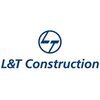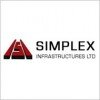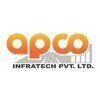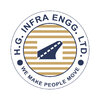
Filter interviews by
Tata Steel Utilities and Infrastructure Services Interview Questions and Answers
23 Interview questions
SBR is a sequencing batch reactor while MBR is a membrane bioreactor.
SBR is a type of activated sludge process where all treatment stages occur in the same tank, while MBR uses a membrane to separate the treated water from the activated sludge.
SBR operates in batch mode, with alternating cycles of fill, react, settle, and decant, while MBR operates continuously.
SBR typically has lower capital costs but higher oper...
WTP stands for Water Treatment Plant and PSTP stands for Prefabricated Sewage Treatment Plant.
WTP is a facility where water is treated to make it safe for consumption or for other purposes.
PSTP is a type of sewage treatment plant that is pre-designed and manufactured off-site before being transported to the final location for installation.
Both WTP and PSTP play crucial roles in ensuring clean water supply and prop...
Civil engineering is a branch of engineering that deals with the design, construction, and maintenance of infrastructure projects.
Involves designing and constructing buildings, bridges, roads, dams, and other structures
Focuses on ensuring structures are safe, functional, and sustainable
Requires knowledge of materials, construction techniques, and project management
Involves working with architects, contractors, and...
There are various types of air compressor houses and gas cleaning plants depending on their size, capacity, and application.
Types of air compressor houses: reciprocating, rotary screw, centrifugal, and axial flow
Types of gas cleaning plants: electrostatic precipitators, fabric filters, scrubbers, and cyclones
The selection of the type of compressor house and gas cleaning plant depends on the specific requirements o...
Reconciliation process is a method of comparing and matching two sets of records to ensure accuracy and consistency.
Reconciliation involves comparing financial records, such as invoices and payments, to identify discrepancies.
It is a crucial step in the billing process to ensure that all transactions are accounted for and accurately recorded.
The process typically includes verifying the accuracy of data, investigat...
Bill certification is the process of verifying and approving bills for accuracy and compliance.
Bill certification involves reviewing bills to ensure they are accurate and comply with relevant regulations and policies.
Key requirements for bill certification include verifying the billing details, checking for any errors or discrepancies, and ensuring compliance with billing guidelines.
The process typically involves ...
I will troubleshoot the sand filter and take necessary actions to fix it.
Check if there is any clogging in the filter
Inspect the valves and pipes connected to the filter
Clean or replace the filter media if required
If the issue persists, consult with the maintenance team
In the meantime, divert the flow to other filters to maintain the water quality
PTW stands for Permit to Work.
PTW is a formal written system used to control high-risk activities.
It ensures that all necessary precautions are taken before starting work.
PTW includes detailed information about the work to be done, hazards involved, and safety measures to be followed.
Examples of high-risk activities requiring PTW include working at heights, hot work, confined space entry, etc.
There are several types of hazards that can occur in various environments.
Physical hazards: Examples include slips, falls, and machinery accidents.
Chemical hazards: Examples include exposure to toxic substances or flammable materials.
Biological hazards: Examples include exposure to viruses, bacteria, or fungi.
Ergonomic hazards: Examples include poor workstation setup or repetitive motion injuries.
Psychological haz...
The distance soil is thrown during excavation varies depending on factors such as the type of soil, equipment used, and excavation method.
The distance soil is thrown during excavation can range from a few feet to several yards.
Factors that affect the distance include the type of soil (e.g., sandy soil may be thrown farther than clay soil), the equipment used (e.g., excavators can throw soil farther than shovels), ...
Tata Steel Utilities and Infrastructure Services Interview Experiences
35 interviews found
I appeared for an interview in Feb 2025, where I was asked the following questions.
- Q1. Hazard identification risk assessment
- Ans.
involves systematically identifying potential hazards in a workplace or activity and then evaluating the likelihood and severity of harm that could result from those hazards, ultimately aiming to minimize risks
- Q2. Six direction hazard
- Q3. Personal protective equipment
- Ans.
specialized clothing or equipment worn to minimize exposure to workplace hazards and prevent injuries, illnesses, and the spread of infection.
- Q4. Meterial handling
- Q5. Confined space hazard
- Ans.
the risk of hazardous atmospheres (toxic, flammable, or oxygen-deficient), engulfment/entrapment, flooding, and extreme temperatures,
- Q6. Fall of objects
I applied via Recruitment Consulltant and was interviewed in Mar 2024. There was 1 interview round.
(5 Questions)
- Q1. Electrical questions for transformers, moter, breakers, cable laying, panel installed.
- Q2. Type of transformers, safety friction etc.
- Ans.
Transformers are electrical devices that transfer energy between two or more circuits through electromagnetic induction, ensuring safety and efficiency.
Types of transformers include step-up, step-down, isolation, and auto-transformers.
Safety measures for transformers include proper grounding, regular maintenance, and overcurrent protection.
Friction in transformers can lead to overheating and insulation breakdown, so pr...
- Q3. Motor maintenance related questions.
- Q4. Electrical wiring related questions.
- Q5. Earthing test and maintain test records.
Interview Preparation Tips
I applied via Company Website and was interviewed in Aug 2023. There were 2 interview rounds.

(5 Questions)
- Q1. What is civil engineering
- Q2. Civil engineering is build anything for other faculties
- Q3. What is HIRA and JSA
- Ans.
HIRA stands for Hazard Identification and Risk Assessment, while JSA stands for Job Safety Analysis.
HIRA is a systematic process for identifying potential hazards in the workplace and assessing the associated risks.
JSA is a process of breaking down a job into its individual tasks to identify potential hazards and implement safety measures.
Both HIRA and JSA are important tools for ensuring workplace safety and preventin...
- Q4. Hira-Hazard identification risk assessment
- Q5. What is wtp and PSTP
- Ans.
WTP stands for Water Treatment Plant and PSTP stands for Prefabricated Sewage Treatment Plant.
WTP is a facility where water is treated to make it safe for consumption or for other purposes.
PSTP is a type of sewage treatment plant that is pre-designed and manufactured off-site before being transported to the final location for installation.
Both WTP and PSTP play crucial roles in ensuring clean water supply and proper se...
Interview Preparation Tips

(6 Questions)
- Q1. Change of scope
- Ans.
Change of scope refers to any modifications or additions to the original project plan.
Change of scope can include additional work, removal of work, or alterations to existing work.
It is important to document any changes in scope to avoid disputes later on.
Changes in scope may impact project timelines, costs, and resources.
Examples of change of scope include client requests for additional features, design changes, or un...
- Q2. Construction program regulation
- Q3. Contractor billing
- Q4. Daily progress report
- Q5. Inspection details as per Authority
- Q6. Bar bending schedule
(2 Questions)
- Q1. Tell about yourself
- Q2. Subject related questions
Interview Preparation Tips
(1 Question)
- Q1. About RCC and steel structure, IS codes
Interview Preparation Tips
(1 Question)
- Q1. About your sef?

(2 Questions)
- Q1. What is the process of water treatment plant. If pressure pump running Anticlock what will you do. What happened if power failure . what will you do first. What is running amper
- Ans.
Water treatment plant process involves several steps. In case of pressure pump running anticlockwise, the pump should be stopped and checked. In case of power failure, the generator should be started. Running amper is the measure of electrical current flowing through a circuit.
Water treatment plant process involves coagulation, sedimentation, filtration, and disinfection.
If pressure pump is running anticlockwise, it ma...
- Q2. What Is your higher qualifications.
I applied via Campus Placement and was interviewed in Mar 2023. There were 4 interview rounds.

There were several questions on aptitude of intermediate level. One having a strong mathematics base can easily clear the round.
In this round there will be a group of 5 or 7 students and a topic was given which everyone had to put their views upon.
(2 Questions)
- Q1. All the questions were upon the things one mentioned in his/her resume.
- Q2. Another level of questions will be from core sections.
Interview Preparation Tips
I applied via Job Portal and was interviewed in Mar 2023. There were 3 interview rounds.

(2 Questions)
- Q1. Simple Question ask but when I joined I feel ,Job responsibilities what they share are not properly shared.
- Q2. Share your introduction
(1 Question)
- Q1. Why u come to Jamshedpur
Interview Preparation Tips
Top trending discussions






Tata Steel Utilities and Infrastructure Services Interview FAQs
The duration of Tata Steel Utilities and Infrastructure Services interview process can vary, but typically it takes about less than 2 weeks to complete.
Tell us how to improve this page.
Tata Steel Utilities and Infrastructure Services Interviews By Designations
- Tata Steel Utilities and Infrastructure Services Project Officer Interview Questions
- Tata Steel Utilities and Infrastructure Services Graduate Trainee Interview Questions
- Tata Steel Utilities and Infrastructure Services Senior Officer Interview Questions
- Tata Steel Utilities and Infrastructure Services Field Engineer Interview Questions
- Tata Steel Utilities and Infrastructure Services Assistant Manager Interview Questions
- Tata Steel Utilities and Infrastructure Services Software Developer Interview Questions
- Tata Steel Utilities and Infrastructure Services Asst Store Interview Questions
- Tata Steel Utilities and Infrastructure Services Design Engineer Interview Questions
- Show more
Interview Questions for Popular Designations
- Executive Interview Questions
- Senior Executive Interview Questions
- Associate Interview Questions
- Software Developer Interview Questions
- Sales Executive Interview Questions
- Graduate Engineer Trainee (Get) Interview Questions
- Associate Software Engineer Interview Questions
- Java Developer Interview Questions
- Show more
Overall Interview Experience Rating
based on 33 interview experiences
Difficulty level
Duration
Interview Questions from Similar Companies
Tata Steel Utilities and Infrastructure Services Reviews and Ratings
based on 376 reviews
Rating in categories
|
Project Officer
81
salaries
| ₹3.4 L/yr - ₹7.5 L/yr |
|
Assistant Manager
50
salaries
| ₹4.5 L/yr - ₹9.8 L/yr |
|
Deputy Manager
34
salaries
| ₹8 L/yr - ₹12.4 L/yr |
|
Manager
26
salaries
| ₹4.6 L/yr - ₹16 L/yr |
|
Senior Officer
25
salaries
| ₹4.8 L/yr - ₹9.5 L/yr |

L&T Construction

Simplex Infrastructures

L&T Energy Hydrocarbon

AECOM
- Home >
- Interviews >
- Tata Steel Utilities and Infrastructure Services Interview Questions













